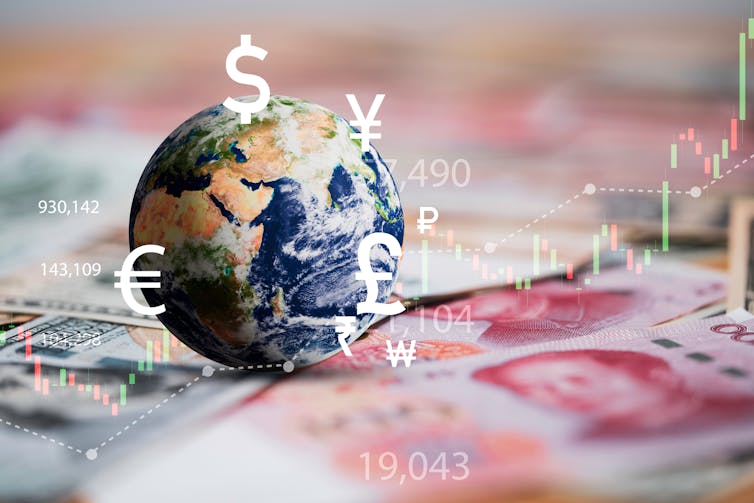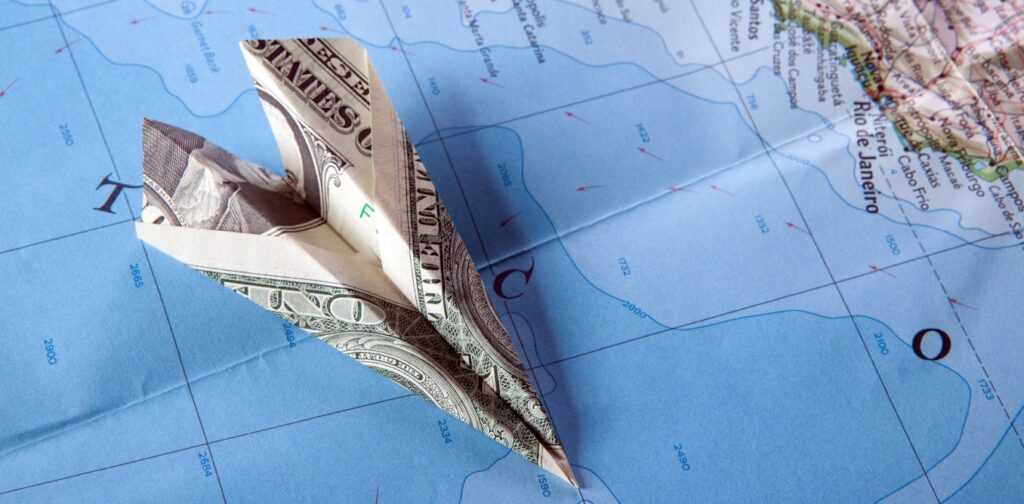Recently, global financial markets breathed a collective sigh of relief as the US debt ceiling crisis was resolved at the last minute. But looking at solutions to this problem, concerns about the dominant role of the United States in the global economy at a time when it faces unprecedented challenges, including low growth, high inflation, and concerns about the stability of the banking system. is increasing again.
There is considerable uncertainty about how these issues will develop. But political paralysis in Washington, the rise of populism, and a retreat from free trade mean the United States may once again have neither the means nor the will to deal with global crises as effectively as it once did.
During the 2008 global financial crisis, as a business correspondent for the BBC, I saw firsthand the dominant role the United States played at home and abroad in resolving the situation. There is currently little evidence of a similar commitment from the United States.
The US Federal Reserve played an important role in 2008. He has stabilized the global banking system by lending more than US$1 trillion (£796 billion) to other central banks through so-called “swap lines” and injecting capital into the financial system.
This facilitated the bailout of the European banking system by lending much-needed dollars. This year, at the height of the banking crisis in March, the Fed intervened again, offering daily currency swaps to other central banks.
During the 2008 crisis, the United States was also a driving force in encouraging major industrialized countries to adopt expansionary policies for economic growth to avoid a global recession.
It also made available an additional $1 trillion to the International Monetary Fund (IMF) to stabilize threats to the financial system and support emerging market and low-income countries. And through the G20, the United States led the creation of the Financial Stability Board (FSB), a global financial regulator to ensure the stability of the world's largest banks.
Recently, the global financial system has been shaken by new financial crises, albeit on a smaller scale, including the failure of several US regional banks and the bailout of Swiss bank Credit Suisse. The latter is one of only 30 systemically important financial institutions in the world that the FSB has identified as having the potential to trigger a financial crisis if they fail.
Read more: Silicon Valley Bank: How interest rates caused the collapse and what central banks should do next
It is by no means clear whether the recent banking crisis is over. There are concerns about the so-called shadow banking system, or largely unregulated financial institutions, which currently account for half of all financial assets in the world. For example, many people in the United States invest in money market funds. Money market funds pay higher interest rates than banks but do not offer deposit insurance.
Meanwhile, the international regulatory system created in 2008 is either ineffective or weakened. Under political pressure, the United States lowered regulations and capital requirements for local banks during the Trump administration, but concerns about the health of local banks remain. Internationally, the impact of the FSB recommendation has been further weakened by geopolitical tensions within the G20 due to differences between emerging market countries and G7 countries over Ukraine.

world economy.Dilok Khuraisataporn/Shutterstock
The future of US influence on the global economy
There are strong reasons to doubt whether the Fed is willing or able to lead another massive 2008-style bank bailout. To begin with, in contrast to the relatively low inflation of 2008, the Fed is now facing contradictory pressures to raise interest rates significantly in an effort to control inflation.
If the Fed is forced to lower interest rates to rescue banks that have made large loans during the recent low interest rate era, we would see an increase in non-performing loans as interest rates rise and borrowers struggle to manage repayments. is likely to rise again. For the same reason, the Fed will be reluctant to support further expansion of the U.S. economy, which could increase inflationary pressures.
Finally, the U.S.'s ability to bail out large banks at home and abroad is limited by the fact that the Fed still has a huge balance sheet overhang left in its 2008 bailout, which the Fed expects to increase by 300%. They're trying to save $1 billion. It will soon reach USD 60 billion per month. The Fed's authority to issue swaps to other central banks could also be challenged by politicians who question the need to support America's economic rivals.
In both Europe and the United States, the twin threats of inflation and low growth have not yet been contained. This casts unprecedented doubt on the credibility of central banks, which are key to their ability to manage the economy.
Meanwhile, the value of financial assets that support the global financial system, particularly U.S. government bonds, has been undergoing dramatic fluctuations due to concerns over the banking crisis, the debt ceiling crisis, and the rapidly increasing amount of U.S. government debt.
Recent attempts by right-wing House Republicans to block passage of some spending bills could ultimately lead to a government shutdown. If that happens, the US government's credit rating will deteriorate further.
All of this is putting unprecedented pressure on banking stability around the world. Rising tensions within the globalized financial system, combined with a weakening United States that retreats from its global role, could pose a danger to the world economy.



